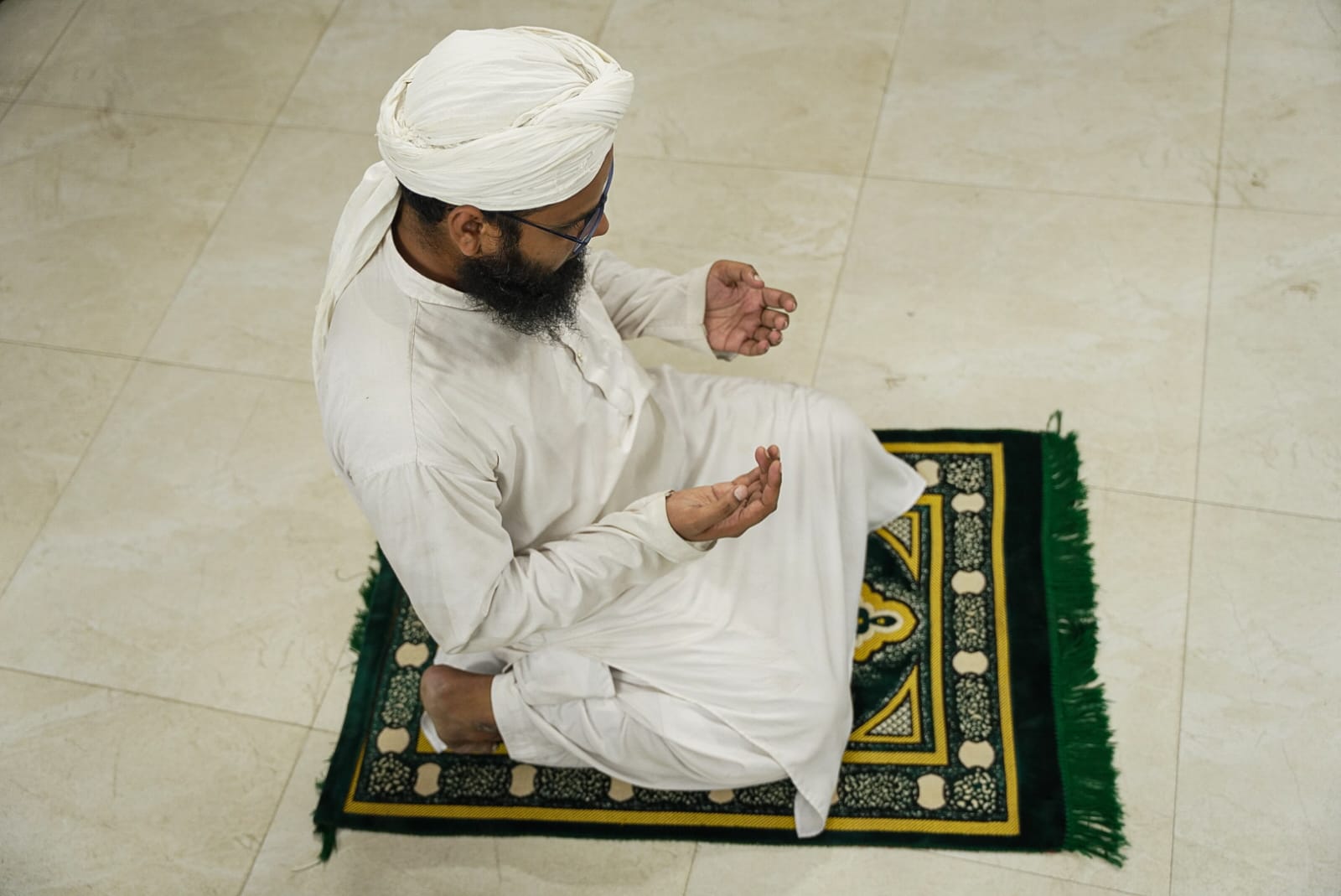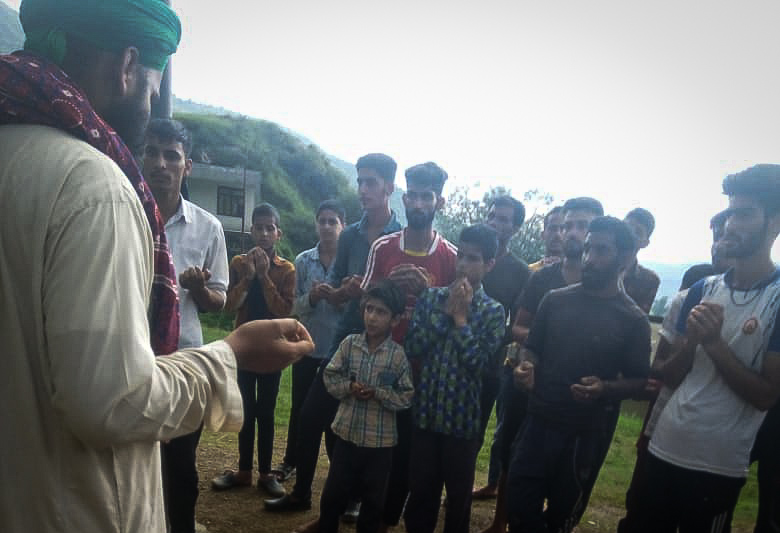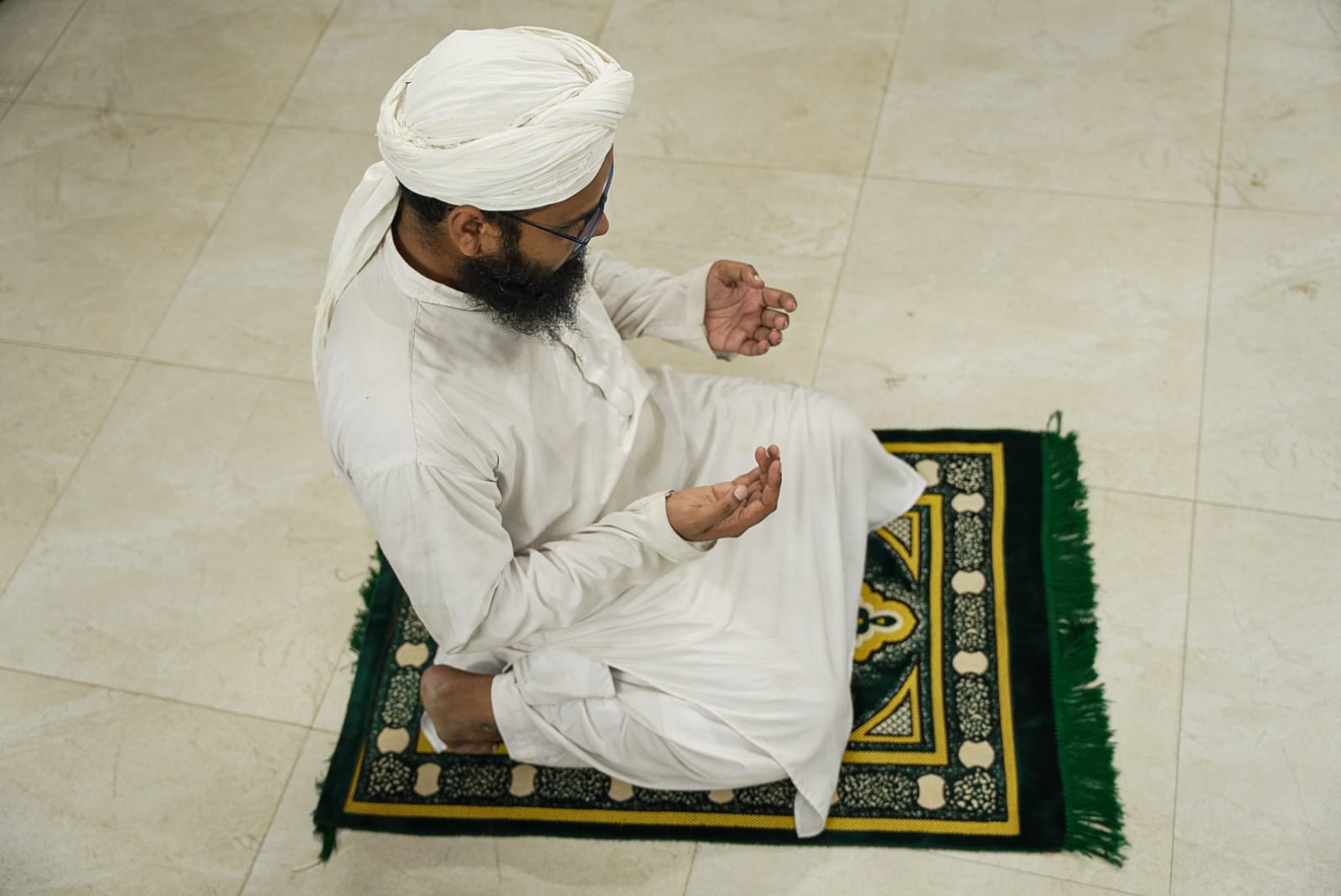hatehs
FULL MEMBER

- Joined
- Mar 10, 2023
- Messages
- 1,883
- Reaction score
- -2
- Country
- Location

Abdul Qadir. Photo: Meer Faisal/The Observer Post
Rushda Fathima Khan and Meer Faisal“I will not leave Islam even if I am killed. At least I will die in faith.”
Eighteen-year-old Abdul Qadir fled his family home naked and starved after escaping four months of brutal torture. For him, he was fleeing from darkness towards light, from his life as Ravindra Kumar Singh to life as Abdul Qadir, from hiding his beliefs to being able to openly declare his belief in the oneness of God and from the persecution by his family to the embrace of his new family- the Muslim community.
The torture he was subjected to by his family, Qadir alleged, included beatings resulting in injuries and bleeding, and forceful consumption of urine and faeces, all done to force him to leave Islam.
“The four months of torture from my family was unbearable but the treatment by Muslims, Qadir said, has been “more painful”.
While he was appreciated by many Muslims for accepting Islam, he faced discrimination as he was unwelcome in Muslim homes, Madrasas and Masjids. Qadir says he received “little to no support from the community.”
“We come in with so many struggles and trials. We have left our families, our father, our mother. My mother died a few months ago. I cannot even make dua for her…,” he trickles off. “The only family we have is the community. But they don’t see it that way.”
Nonetheless, he maintains an uncompromising conviction in the Islamic faith. “I made this choice for Allah. My only wish is that my Rabb is pleased with me.”
One God
Abdul Qadir, then Ravindra Kumar Singh, was a B.Sc Computer Science student at CV Raman College in Odisha. He often came across his Muslim classmates discussing the concept of monotheism- the belief in the oneness of God was mentioned in the Vedas.“I was intrigued when I heard my Muslim friends mention the concept of Brahma (creator) in the Vedas. I first read the Atharva Veda, Manusmriti and later completed all four Vedas,” he says. “I came across the phrase ‘Ekam Brahma’- One Creator.”
“I also wondered about the use of the word Brahma for God in the Vedas because there is no worship of a God called Brahma in Hinduism,” he adds.
Qadir was later introduced to the concept of the oneness of God in Islam- the fundamental basis of the Islamic belief that is referred to as Tawheed.
“I read the Qur’an in Hindi translation and also read small books of hadith. When you see a proper belief system, your heart feels satisfied. I loved the Islamic system, its concept,” he says.
He then started to practically implement the concept of Tawheed in his life. He gradually started performing prayers and observing fasts. “That’s when the problems started at home,” he says.
Torture
Abdul Qadir belonged to a Thakur family, an upper caste in the Hindu socio-religious hierarchy in Odisha. He lived with his parents, two older brothers, uncle and other relatives. After months of hiding his belief from his family, his uncle spotted him wearing a skull cap outside a Masjid while he was returning from Friday prayers.“I took time to get home, nervously anticipating what I was about to face,” he recounts.
Qadir says he was familiar with the sacrifices and struggles of Bilal (May Allah be pleased with him) and other companions of the Prophet (peace be upon him) for the sake of Islam. “I realised that it is now time for me to sacrifice.”
None of Qadir’s family members supported his choice to become Muslim. He was brutally tortured to coerce him to give up his beliefs.
“They would strip me naked and tie me up in a corner of the room. My father, uncle and brother would come in one by one and beat me up. They would urinate all over me. They would force me to drink their urine and eat faeces,” He recounted the brutal torture by his family.
“On one occasion they hit me hard on my head, I bled profusely and another time they inserted a hot rod up my rectum.”
Unable to bear the torture any further, Qadir says he made a dua, a prayer, to Allah seeking death. “When struggles get unbearable for a Muslim, we are allowed to ask for Allah for death. I was not able to bear the pain,” he says.
But after four months of torture and humiliation, Qadir somehow managed to escape from the house.
“I loosened the ropes, untied myself and ran out of the house naked. I was hungry as they would not feed me. I did not have the strength to go far and fainted around 200-300m away from home,” he narrated.
He then woke up in the house of one of his father’s friends who gave him Rs 100 and told him to run away. “Disappear or else your family will kill you,” they told him.
Mother’s Love & Oneness of God
Abdul Qadir shared a close bond with his mother. “My mother used to cry. She would say, ‘My son, leave this (Islam).’ I would cry too. I would say, Ammi, how can I leave it?”He shares an analogy: “I was travelling on such a boat – me getting down was impossible. I could see that my mother was drowning in the water. In that situation, all I can do is extend my hand and lift her or get into the water and bring her out but not give up my life by drowning with her. There is no permission for this.”
He compares the boat to being Tawheed and the oneness of Allah and the water as being his mother’s love. “I would remember the verse from the Qur’an– First is obedience to Allah, and then there is kindness and care to parents.”
13 years as a Muslim
When Abdul Qadir left home, he did not have any documents. He faced challenges in getting a job or even completing his degree.“Nobody accepted me as I had run away from home. Even Muslims were skeptical,” he says.
He then moved to Jharkhand and tried to enroll at a madrasa in order to study Islam. However, the madrasa management would hesitate to enroll him full-time. He managed to convince them to let him study in the evenings.
Qadir said that the people at the madrasa people did not let him enter the masjid because he was not circumcised.
He eventually got a circumcision done at a private hospital in Motihari. “At that time I had only 2700 rupees in my pocket and I spent all of that on the operation.”
When the doctors finished the operation, they asked Qadir to vacate the bed. “I left the hospital and reached my home which was 7 km away- crawling. It took me six hours and also tore the stitches.”
He said he lay in bed hungry for five days but no one came to see him. He would bandage the circumcision wound with polythene and go to sell bangles to make some money that would fetch him food.
A wound that should have otherwise healed in 4 weeks took him 11 months.
Qadir went on to study and gain Islamic knowledge. He is now an Aalim. He is married and has two little children. He speaks at many masjids and madrasas and runs some small businesses to make ends meet.
Qadir believes that despite his integration into the Muslim community, he is still seen as a threat by the community.
“Muslims associating with revert Muslims and providing them with aid and support is usually tapped on by government authorities and they could be unfairly charged with forced conversion or allurement. Fearing this, most Muslims would refrain from providing help and support.”
The police sometimes pick him up for an inquiry. “When Muslims see two policemen, they get scared. They are cowards,” he says.
When Qadir returns from the inquiry, the madrasa and masjid say they don’t want him to preach there anymore. Since he became an Aalim, he has moved two masjids and three madrasas.
“Muslims like to listen to me, and other reverts like me- our stories. It inspires and motivates them,” he says. “But when it comes to supporting- whether financially, spiritually or in any manner- the community has broken my heart.”

Photo: Special arrangement
Police Inquiries
Abdul Qadir now lives in New Basti, Rampur. The police summoned him for inquiries thrice while he was visiting Odisha for documentation work and conducted inquiries multiple times over call.“They are continuously harassing me,” he says, adding that the situation in Uttar Pradesh has turned very sensitive, especially for revert Muslims.
The police question him regarding conversion cases and allege that he forcibly converts non-Muslims. “I don’t do this. If anyone approaches me to recite the Kalima (Islamic declaration of faith), I just help them in reciting it,” he says.
The police also often question him on why he embraced Islam. They mock me: “how much money did you get?” they ask,” he recounts in respite.
“If you leave Islam, we will stop troubling you,” they say. He responds, “I will not leave Islam even if I am killed. At least I will die in faith.”

An Upper Caste Hindu Man's Journey to Islam: Family Torture, Muslim Hostility & Police Harassment
“I will not leave Islam even if I am killed. At least I will die in faith.” Rushda Fathima Khan and Meer Faisal Eighteen-year-old Abdul Qadir fled his family home naked and starved after escaping four months of brutal torture. For him, he was fleeing from darkness towards light, from his life as...

